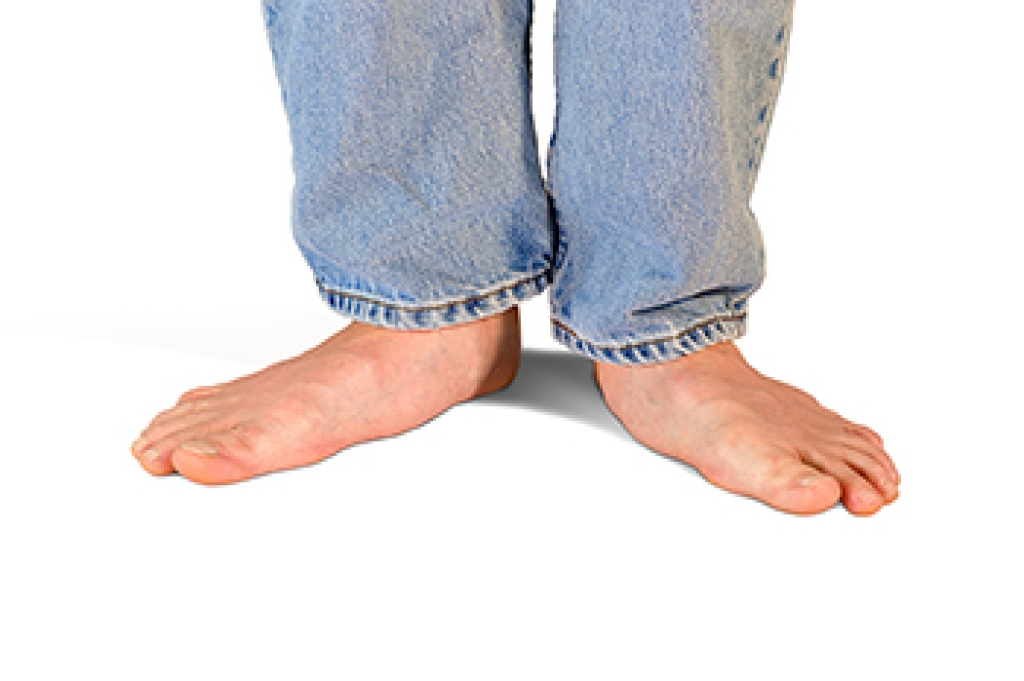
Flat feet, also known as fallen arches, occur when the arches of the feet collapse or are not properly developed. This condition can cause the entire foot to make contact with the ground while standing. Flat feet may be caused by genetics, injury, aging, or conditions like obesity and arthritis. Common symptoms include foot pain, particularly in the arch or heel, swelling, and discomfort during physical activities. Some people may experience knee, hip, or lower back pain due to the altered biomechanics of the body. Diagnosis typically involves a physical examination and imaging tests like X-rays to assess foot alignment. Treatment options range from wearing supportive footwear and custom orthotics to surgery for severe cases. While many people live comfortably with flat feet, untreated cases can lead to complications like tendonitis, arthritis, and chronic pain. If you have pain from flat feet, it is suggested that you consult a podiatrist for a diagnosis and pain-relieving treatment.
Flatfoot is a condition many people suffer from. If you have flat feet, contact Howard Abramsohn, DPM from Ambulatory Foot and Ankle Associates, LLC. Our doctor will treat your foot and ankle needs.
What Are Flat Feet?
Flatfoot is a condition in which the arch of the foot is depressed and the sole of the foot is almost completely in contact with the ground. About 20-30% of the population generally has flat feet because their arches never formed during growth.
Conditions & Problems:
Having flat feet makes it difficult to run or walk because of the stress placed on the ankles.
Alignment – The general alignment of your legs can be disrupted, because the ankles move inward which can cause major discomfort.
Knees – If you have complications with your knees, flat feet can be a contributor to arthritis in that area.
Symptoms
- Pain around the heel or arch area
- Trouble standing on the tip toe
- Swelling around the inside of the ankle
- Flat look to one or both feet
- Having your shoes feel uneven when worn
Treatment
If you are experiencing pain and stress on the foot you may weaken the posterior tibial tendon, which runs around the inside of the ankle.
If you have any questions, please feel free to contact our office located in Mt Laurel Township, NJ . We offer the newest diagnostic and treatment technologies for all your foot care needs.
